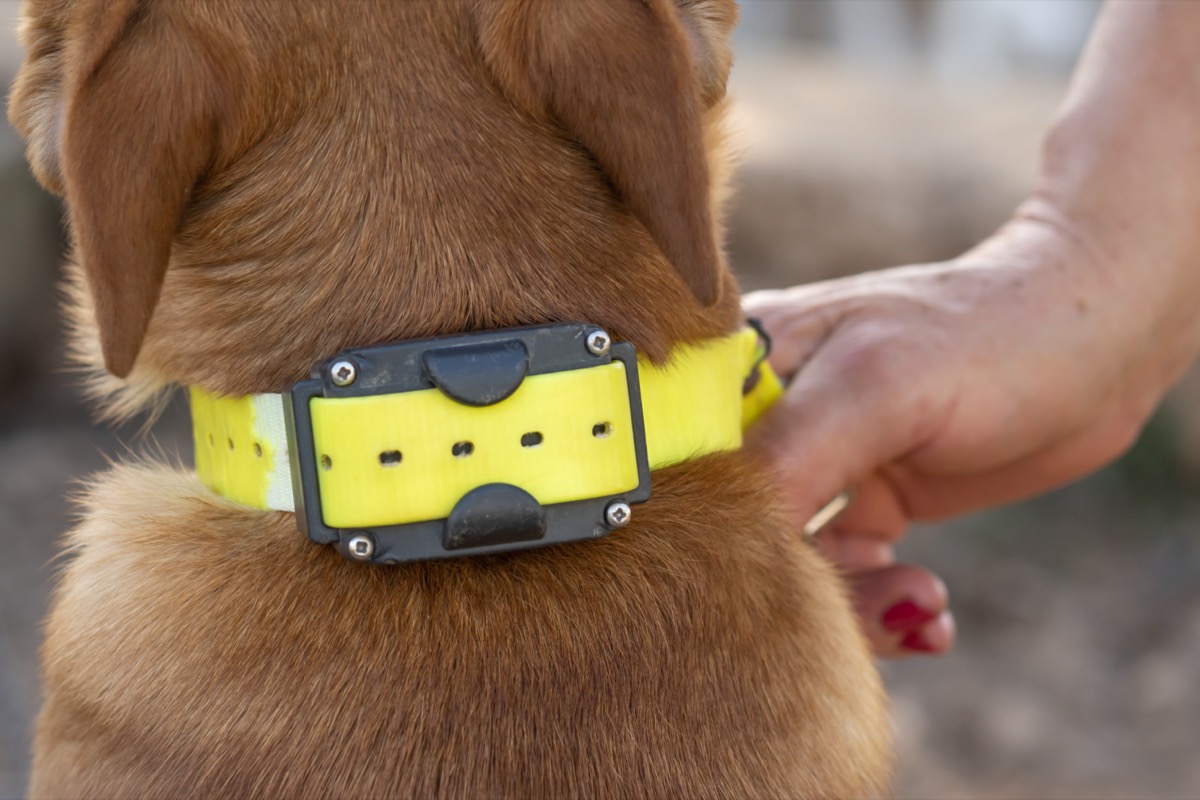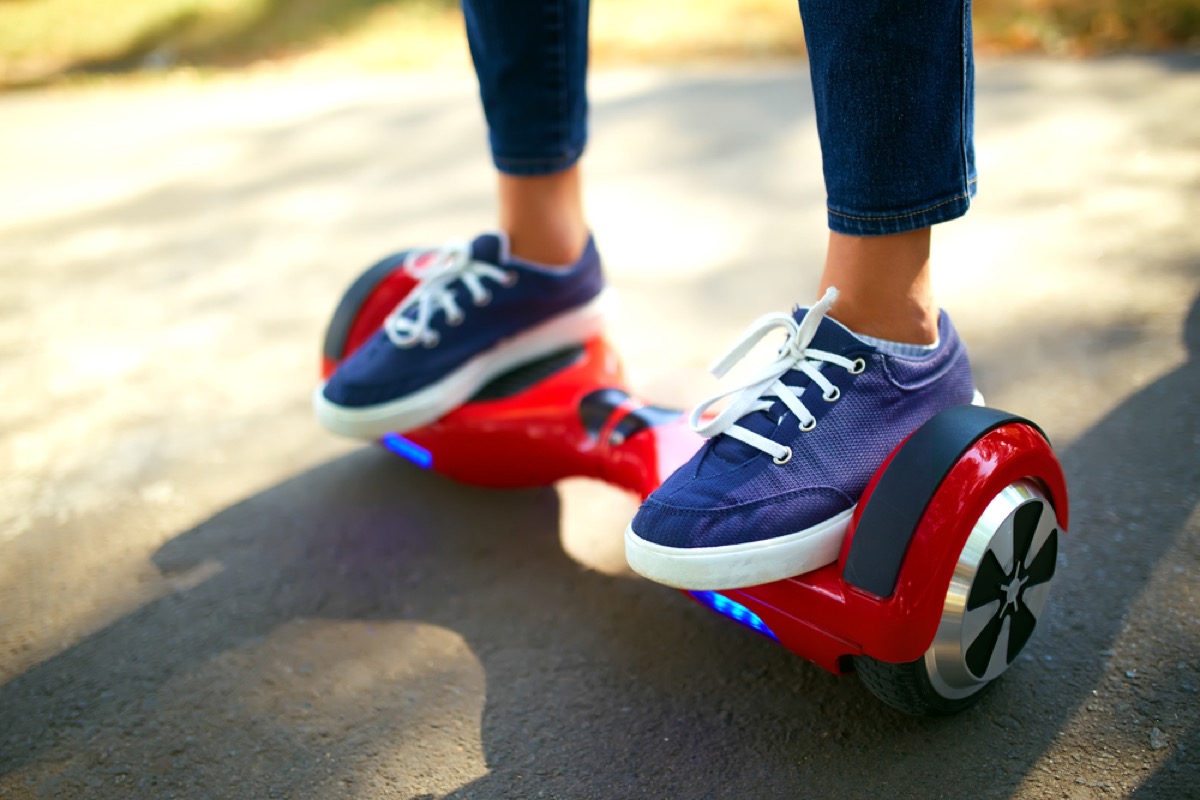Petco Just Took This Controversial Product Off Its Shelves

Just like parents and their human children, every pet owner has a different idea of what’s best for their fur babies, particularly when it comes to training. Some prefer to focus on positive reinforcement only, while others use tools to punish and correct bad behavior. But now, a leading pet company is sending a signal that one method may be better than the other. On Oct. 6, Petco announced that they will stop selling electric shock collars, suggesting they are harmful to dogs. The decision was effective immediately, with all human- and bark-activated electronic pet collars removed from Petco’s shelves in-store, as well as their online stock, on Oct. 6. Read on to learn more, and to find a pup that’s right for you, check out The 50 Most Popular Dog Breeds in America.
“Electricity may be critical to powering your microwave, but it has no role for the average pet parent training their dog,” Petco CEO Ron Coughlin said in statement. “Shock collars have been shown to increase fear, anxiety, and stress in dogs, and we believe there’s a better way—positive reinforcement training.”
Coughlin said Petco wants to emphasize that it is a health and wellness company for animals. “Our mission is focused on improving pet lives and we think selling shock collars does the opposite. It’s our responsibility to ensure that we, and others, aren’t putting potentially harmful products in the wrong hands,” he said.

The decision was overseen by the Petco Pet Wellness Council (PPWC), an organization that was created last year as a “coalition of independent, leading experts in veterinary science and animal care.” “Shock collars are misguided, antiquated, harmful equipment,” Alexandra Horowitz, MS, PhD, a member of the PPWC and head of the Horowitz Dog Cognition Lab at Barnard College, said in a statement. “It’s great to see Petco taking the lead in removing this merchandise from their stores, in support of their advocacy of positive reinforcement training.”
According to a 2020 study conducted by market research firm Edelman Intelligence, 70 percent of dog parents feel that shock collars are harmful for pets’ emotional and mental well-being, and 69 percent consider shock collars to be a cruel form of training.
The study also found that most people agree that electric shock collars shouldn’t be sold to just any pet owner: 71 percent of dog parents felt there should be some type of limitation on the sale of shock collars, while 51 percent said shock collars should only ever be used by professionally trained dog trainers.
“Science shows animals will learn a new behavior faster and more successfully if they are allowed to voluntarily participate in the learning process and are rewarded for preferred behaviors,” said Whitney Miller, head of veterinary medicine for Petco. “Punishment is not only less successful in changing unwanted behaviors, shock collars have been known to actually reinforce negative behaviors and create anxiety within pets.” For more recent pet news, check out Owning This One Pet Can Help You Live Longer, Study Says, and for other products that have been deemed dangerous, read on!
1
Infant inclined sleepers

At the end of 2019, major retailers such as Walmart, Buy Buy Baby, Amazon, and eBay announced they were no longer selling infant inclined sleepers. This was after federal safety regulators linked the item to more than 70 accidental deaths.
2
Corded window blinds

Both Ikea and Target decided to stop selling window blinds with cords in 2016. By the end of 2018, Home Depot, Lowe’s, and Walmart had also stopped selling these blinds. According to law firm Wagner Reese, this was after a 30-year struggle to regulate corded blinds due to the fact that they had caused nearly 500 deaths and injuries.
3
Toxic paint strippers

Up until May 2018, Lowe’s was still selling paint strippers containing methylene chloride—a toxic chemical that has been linked to multiple deaths and said to cause liver toxicity, cancer, harm to the nervous system, and even trigger heart attacks. The major home retailer announced it would stop selling these paint strippers just over two years ago.
4
Hoverboards

Hoverboards became all the rage in the mid-2010s, but they quickly fell from grace after various boards spontaneously burst into flames due to their large lithium ion batteries. Most airlines banned hoverboards from flights, and in 2015, retailers such as Amazon stopped selling them because they were deemed a potential fire hazard. And for more useful content delivered straight to your inbox, sign up for our daily newsletter.